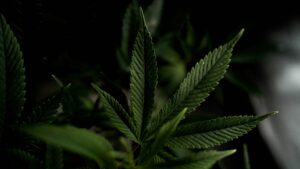In recent news, the DEA has classified Delta-8 and Delta-9 THC-O, two novel cannabinoids derived from hemp, as controlled substances. This news has sent shockwaves through the cannabis industry, as many businesses had been operating under the assumption that these compounds were legal. In this article, we will dive into the details of this new ruling and what it means for the future of the industry.
What are Delta-8 and Delta-9 THC-O?
Delta-8 and Delta-9 THC-O are two novel cannabinoids that have gained popularity in recent years. Delta-8 is a compound that is structurally similar to Delta-9-THC, the compound responsible for the psychoactive effects of cannabis. Delta-9 THC-O, on the other hand, is a derivative of Delta-9 THC that has been modified to have a slightly different chemical structure.
THC-O Effects and Uses
Consumers have flocked to THC-O products for their extreme potency, being touted as three times stronger than Delta-9 THC. However, this is due to the manufacturing process where an acetate is added to a THC molecule. Unlike other alternative cannabinoids (many of which also require additional manufacturing), THC-O is completely synthetic. It is not found in even trace amounts in either hemp or marijuana.
Are Delta-8 and Delta-9 Still Legal?
Yes, so long as they abide by laws set forth by the 2018 Farm Bill. The bill contains provisions related to hemp, which is defined as cannabis that contains no more than 0.3% THC on a dry weight basis.
The Farm Bill legalized hemp at the federal level, removing it from the list of controlled substances under the Controlled Substances Act. This means that hemp is no longer considered a Schedule I substance, and its cultivation, processing, and sale is legal under federal law.
The bill opened up the doors for hemp-derived cannabinoids and their byproducts to hit the open market. However, not without stipulations. Although both Delta-8 and Delta-9 are found in hemp and marijuana, if the product was made with hemp, it must contain less than 0.3% Delta-9 THC. If either of these deltas were from marijuana, they are only legal for sale and use in a licensed dispensary.
What Does the DEA’s Ruling Mean?
The DEA’s ruling means that both Delta-8 and Delta-9 THC-O are now classified as Schedule I substances under the Controlled Substances Act. This means that they are considered to have a high potential for abuse and no accepted medical use. As a result, the production, sale, and possession of these compounds is now illegal at the federal level, even if they are derived from legal hemp.
How the DEA’s Ruling Affects the Cannabis Industry
This ruling has significant implications for the cannabis industry. Many companies have been producing and selling Delta-8 and Delta-9 THC-O products under the assumption that they were legal. However, with this new ruling, these companies will have to restructure their business models or risk facing legal consequences.
It’s worth noting that some states have their own laws regarding these compounds, which may differ from federal law. Therefore, it’s essential for businesses in the industry to consult with legal counsel to ensure compliance with all applicable laws.
While the full implications of this ruling are yet to be seen, it’s clear that it will have a significant impact on many businesses operating in the space. As always, it’s essential for businesses to stay up-to-date on all applicable laws and regulations to ensure compliance and avoid legal trouble. It could mean a window of time to remove any THC-O products from stores, or it may mean immediate removal.
For many small businesses, this is a massive implication that includes a significant loss of potential revenue as well as losses in packaging, raw materials, and finished goods.






